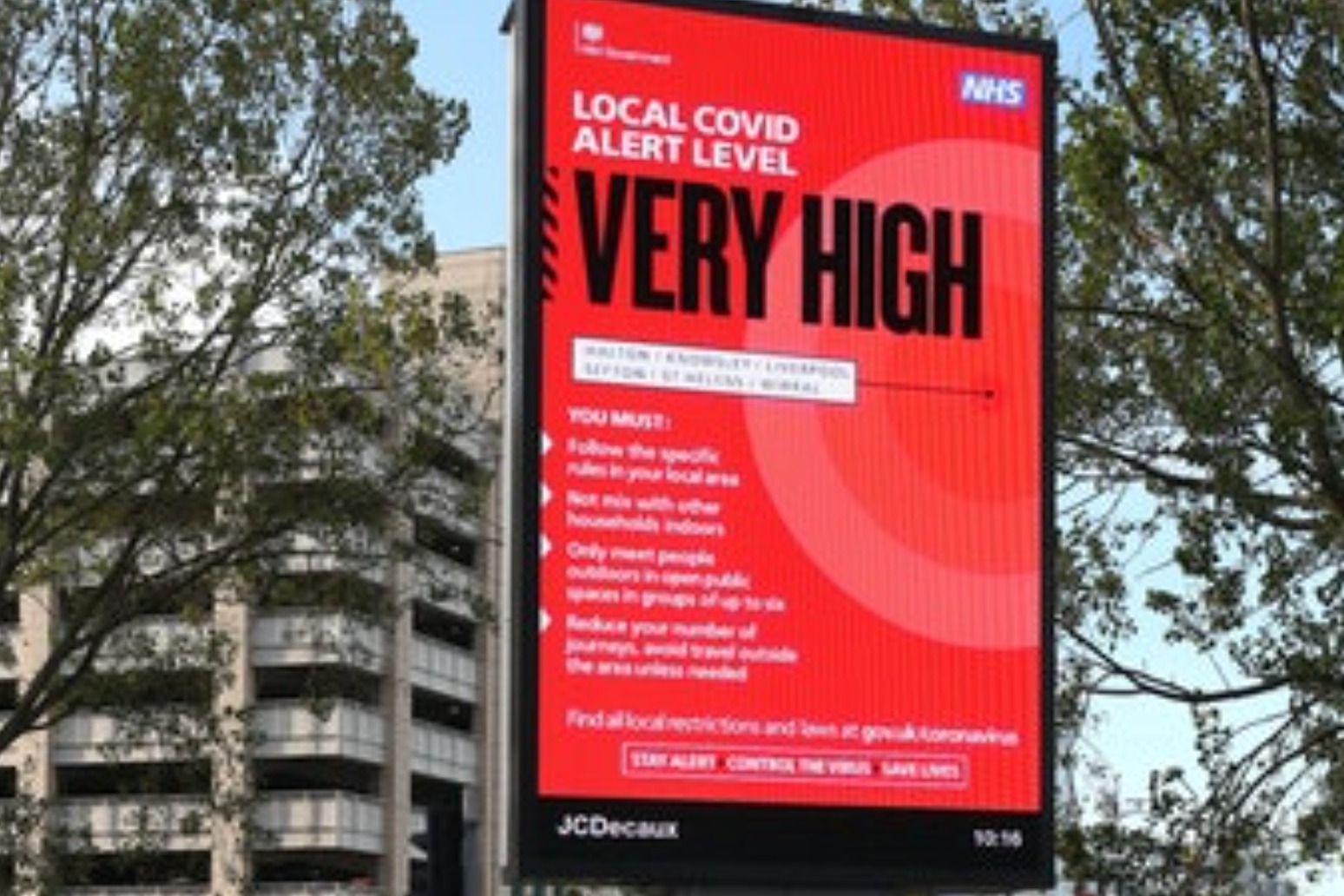
Tougher restrictions expected in Manchester with London to move into Tier 2
Millions of people in England will face tougher coronavirus restrictions, with pubs expected to be ordered to shut in Greater Manchester and households banned from mixing indoors in London. Discussions are continuing between local leaders and the Government over the extension of coronavirus controls, with Greater Manchester and Lancashire at risk of having the toughest Tier 3 restrictions which would involve closing pubs and bars unless they can operate as restaurants.
MPs in the capital have been told that London will move to Tier 2 at midnight on Friday, meaning households will be banned from mixing indoors including pubs from Saturday.
Ministers are holding a series of talks with MPs from the regions affected by the changes ahead of Health Secretary Matt Hancock giving a Commons update on the measures.
Greater Manchester mayor Andy Burnham, who has been resisting following the Liverpool City Region into Tier 3 restrictions, was to hold talks with No 10 as he demands greater financial support.
His region and Lancashire are under pressure to accept the controls set out for “very high” risk areas, which have so far only been applied in the Liverpool City Region.
London mayor Sadiq Khan told City Hall the expected move to Tier 2 is based on “expert public health and scientific advice about what is necessary to save lives in the capital” but stressed that he was pushing for extra support from the Government.
“Nobody wants to see more restrictions – but this is deemed to be necessary in order to protect Londoners’ lives by myself, London council leaders and by ministers,” he said.
The ban on households mixing indoors could be devastating for the capital’s 3,640 pubs and 7,556 restaurants – who will see business suffer but will not be eligible for Government support available to premises which have been ordered to close.
Mr Khan has supported the change in London’s categorisation, unlike his counterpart in Greater Manchester.
Business minister Nadhim Zahawi said the Government could not rule out imposing the restrictions regardless of local support.
He told BBC Radio 4’s Today programme: “All I would say to Andy Burnham… I hope we can continue to work together, this is not a time for division.
“It’s important that we look at how we actually suppress this virus because the alternative is much worse for the people of Manchester and the rest of the country.”
The Government’s Joint Biosecurity Centre had reportedly recommended most of the North West and North East of England, as well as parts of Yorkshire and the Midlands, should be moved into Tier 3.
Professor Calum Semple, a member of the Scientific Advisory Group for Emergencies (Sage) informing the Government’s Covid-19 response, said Manchester and other regions are in need of Tier 3 measures.
“There is always going to be some friction between the focus on the numbers of case and the need to keep the economy going, but from a purely academic point of view where I’m coming from, if you allow the numbers to rise, it inevitably has an impact on the economy because you start to lose the capacity to deliver these other essential services,” he told BBC Breakfast.
Meanwhile, Northern Ireland is braced for the toughest controls in the UK so far with pubs and restaurants set to close for four weeks from Friday and schools facing a two-week shutdown.
And the UK Government described a decision by the Welsh Government to ban travel to the country from other parts of the UK with high levels of coronavirus infection as “disappointing”.
Boris Johnson remains desperate to avoid any form of national lockdown – despite demands from Labour for a temporary “circuit-breaker” to break the train of transmission and stem the spread of the disease.
In the Commons on Wednesday, he urged Labour leader Sir Keir Starmer to use his influence with Labour authorities in the North to agree to “stringent measures” to get the rates down.
But in an online press conference on Wednesday, Mr Burnham said that if Greater Manchester was placed into Tier 3 it would be “by imposition, not consent” and threatened legal action.
Meanwhile, the Government’s former homelessness adviser Dame Louise Casey has warned the offer of two-thirds of pay for workers whose employers close would not “cut it”.
Under the furlough scheme, the Government paid 80% of workers’ wages until August, with the scheme winding down until it is fully closed at the end of the month.
A separate Job Support Scheme, which launches on November 1 and lasts for six months, will involve the Government paying two-thirds of each employee’s salary – up to a maximum of £2,100 a month – if their employer is legally required to close their premises because of restrictions.
Dame Louise told the BBC: “There’s this sense from Downing Street and from Westminster that people will make do. Well, they weren’t coping before Covid.
“It’s like you’re saying to people, ‘You can only afford two-thirds of your rent, you can only afford two-thirds of the food that you need to put on the table’.”
Shadow Treasury chief secretary Bridget Phillipson said: “People shouldn’t have to worry about meeting their rent, paying the bills or putting food on the table because the Government has lost control of virus.”
Published: by Radio NewsHub